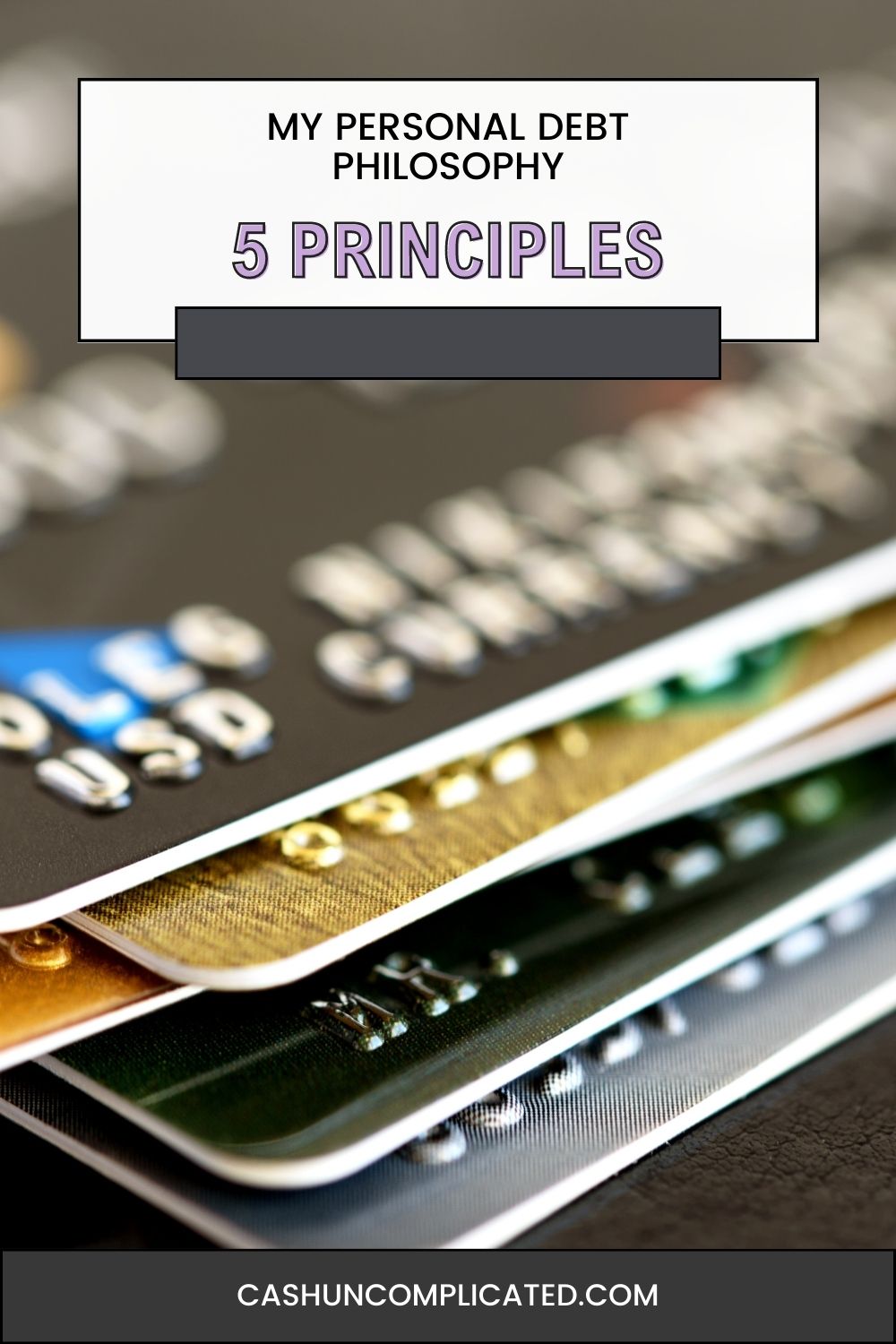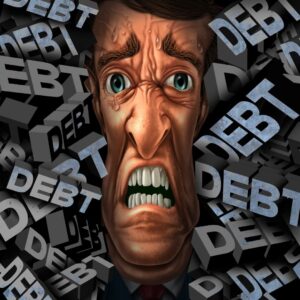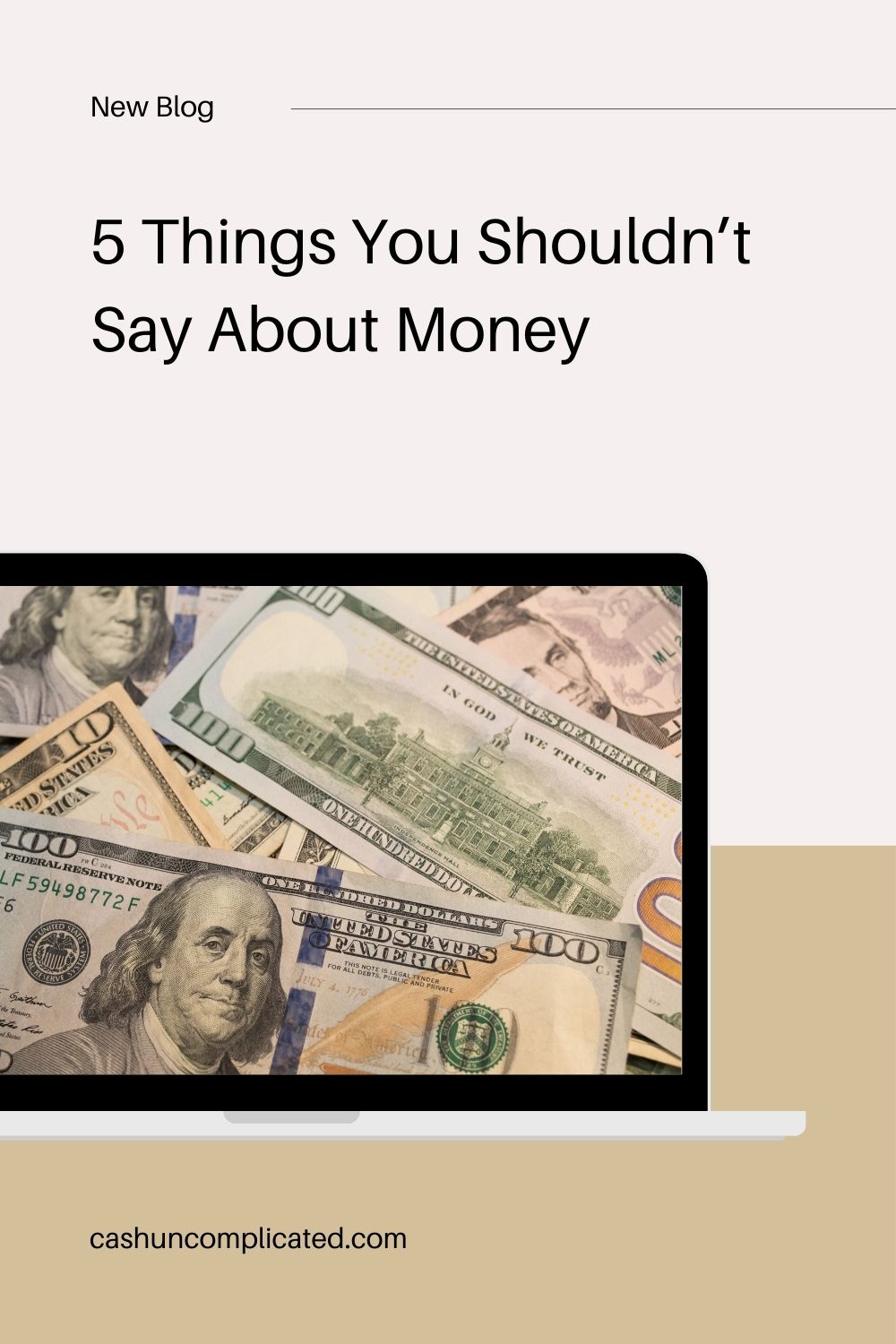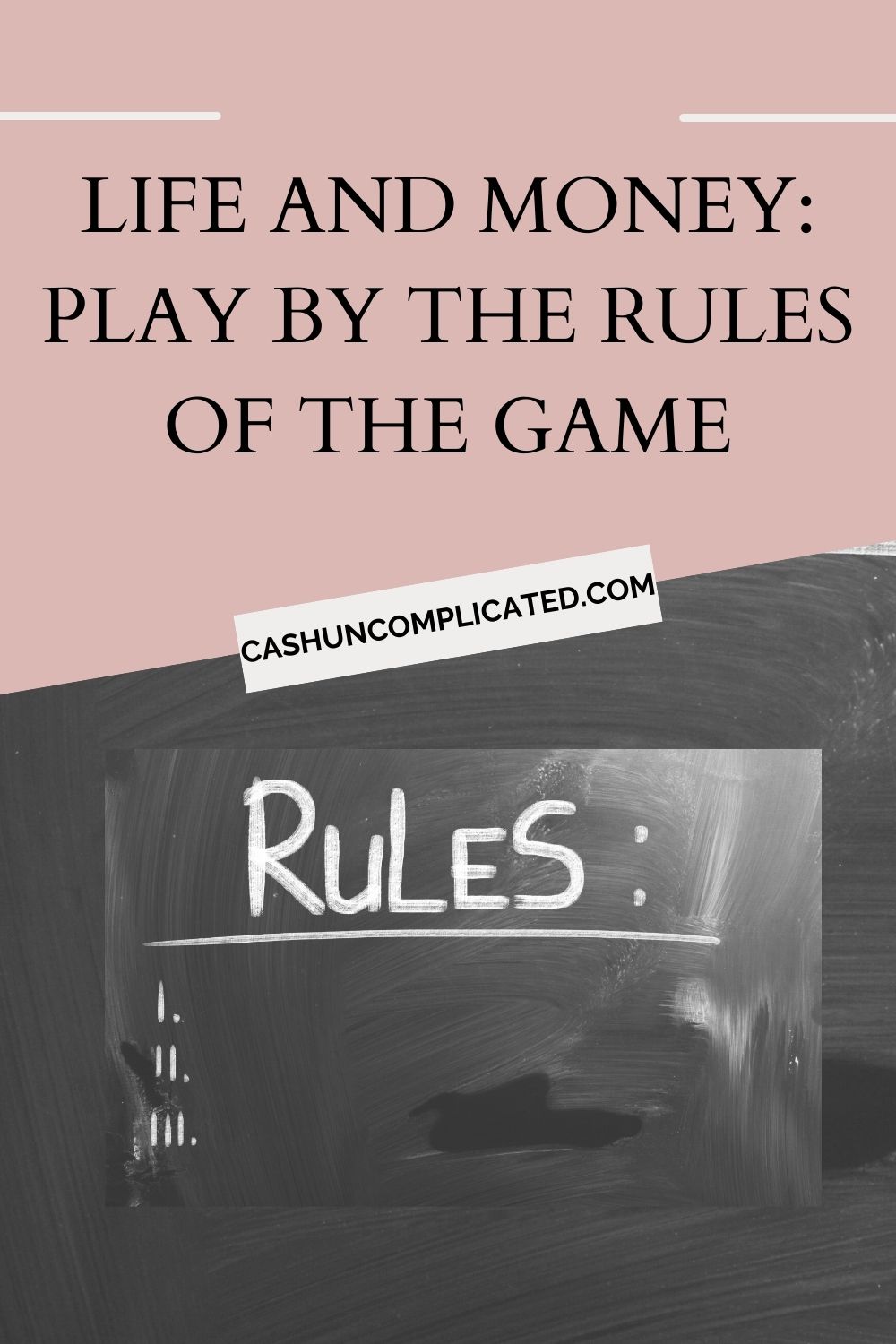I write a lot about debt. It’s an important topic that affects millions of people every year. This post is about my personal debt philosophy and five principles I follow when it comes to it.
Debt Defined
Debt is owing money. It can be a person, a company, a bank, credit card, etc. If you owe them money, it’s debt.
Consumer Debt Versus Good Debt
Not all debt is the same. As I write about in my book Cash Uncomplicated, there are two types of debt: consumer debt (or bad debt) and good debt.
Consumer debt makes you no money and costs you every month to keep it. Examples include car payments, credit cards, store credit, etc. If you carry a balance on these types of debt, you’re paying interest every month and losing money.
Good debt on the other hand is still debt, but it’s debt that makes you money or has a possibility to. A rental property is a good example of good debt.
Using easy and quick numbers, imagine a property rents for $2,000 per month and costs $1,500 per month including principal, interest, property taxes, insurance, capital expenditures, management, repairs, vacancies, etc. In this scenario, you’re making $500 per month.
Yes, it’s debt, but it’s good debt because it’s making you money every month. Note: keep reading as one of my principles is that good debt can turn into bad debt.
Why Have a Personal Debt Philosophy?
As anything in life, it’s important to have clear criteria. A personal debt philosophy provides that clear criteria, minimizing confusion moving forward. It also avoids getting yourself into bad situations due to lack of criteria and focus.
My Personal Debt Philosophy
The following is my personal debt philosophy. It’s what I’ve learned through years of experience, trials and tribulations, and research.
Number 1: Avoid All Consumer Debt
This is a philosophy I’ve lived by for well over 10 years now: avoid all consumer debt. This includes:
- Credit cards
- Store credit
- Car payments
- Anything consumer related
Without consumer debt, the money I earn both passively and actively is mine to keep. I don’t have to make monthly payments, and I’m not paying interest on purchases I made in the past. Not having consumer debt is a blank canvas I get to work off every month.
Number 2: Establish a Strong Financial Foundation
You can’t talk about a financial foundation without bringing up debt. A strong financial foundation is one without consumer debt and the nagging bills that come with it.
Consumer debt creates a wobbly foundation because a good part of your resources (your money) are being used to pay for things of the past. That leaves little to no money available to invest, create an emergency fund, save for a house, etc.
Number 3: Create a Plan
I’m big on planning. Do some hard work up front to create the plan, and then follow it. Any good money plan is going to have some element of debt in it. Some examples:
- A plan to get rid of consumer debt if there is any
- Some kind of debt philosophy embedded into the plan
- If no consumer debt, a plan to stay out of it
Planning goes a long way and will save a lot of future heartache if executed properly.
Number 4: Good Debt Can Turn Into Bad Debt Quickly
As defined earlier, good debt makes you money, as in the case of a leveraged rental property. The income earned exceeds the payments and operating costs.
A word of caution though: good debt can turn into bad debt quickly. Here are a few ways it can happen, among many:
- Rents decrease
- Property taxes and expenses increase while rents remain flat
- Larger monthly payments due to interest rates rising on debt that isn’t fixed
It’s for these reasons (and others) that good debt should be used with caution, which is the next tip.
Number 5: Even Good Debt Should Be Used with Caution
Because good debt can slip into bad debt, all debt should be used with caution. You’ve probably heard of investors being “over-leveraged”, which is another way to say an unhealthy amount of good debt.
My advice is that if you’re going to utilize good debt, go slow and be cautious. The “get rich quick” gurus tell you to leverage as fast and as often as possible, but that can lead to way too much leverage for a limited amount of skill.
Moving cautiously and slowly will allow your skill level to increase as you’re learning. Then you can think about leveraging more. Or decide to slow down again.
Conclusion
A personal debt philosophy gives you power over debt. Having clear values around debt leads to intentional actions and avoiding some of the debt pitfalls that so many people face.
Way too many people spend years of their life just trying to get out of consumer debt. The simple act of getting out of consumer debt provides a rock-solid financial foundation that will benefit anyone their entire life.
What is your personal debt philosophy?







